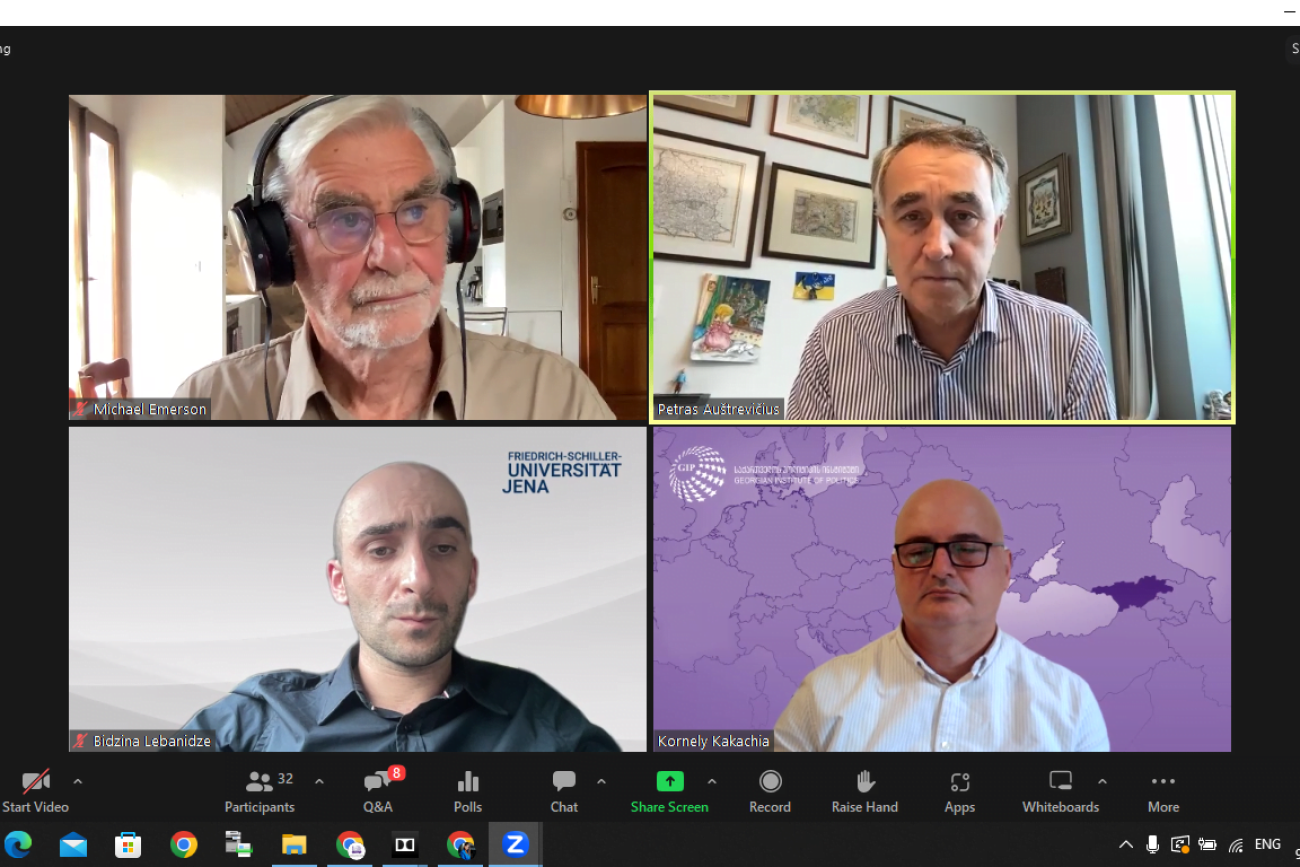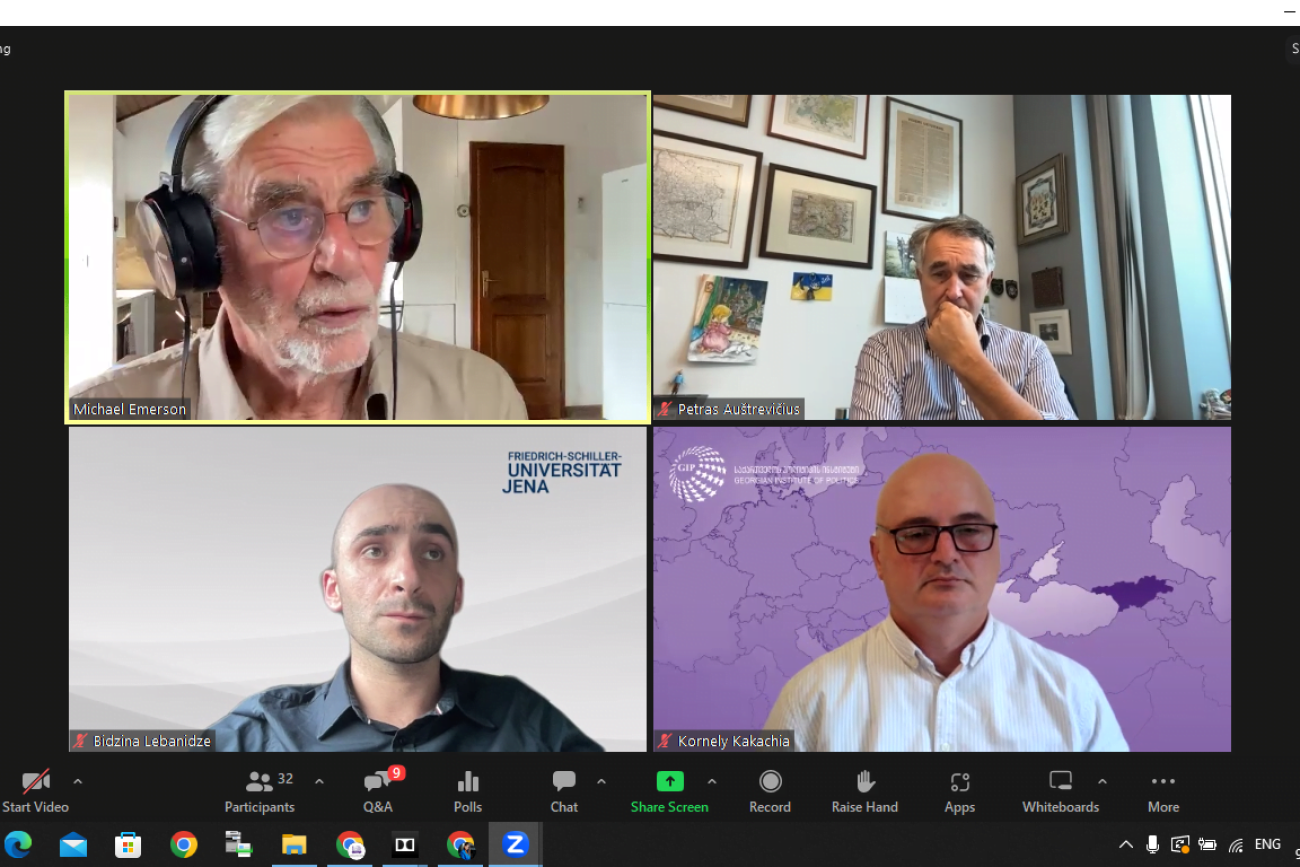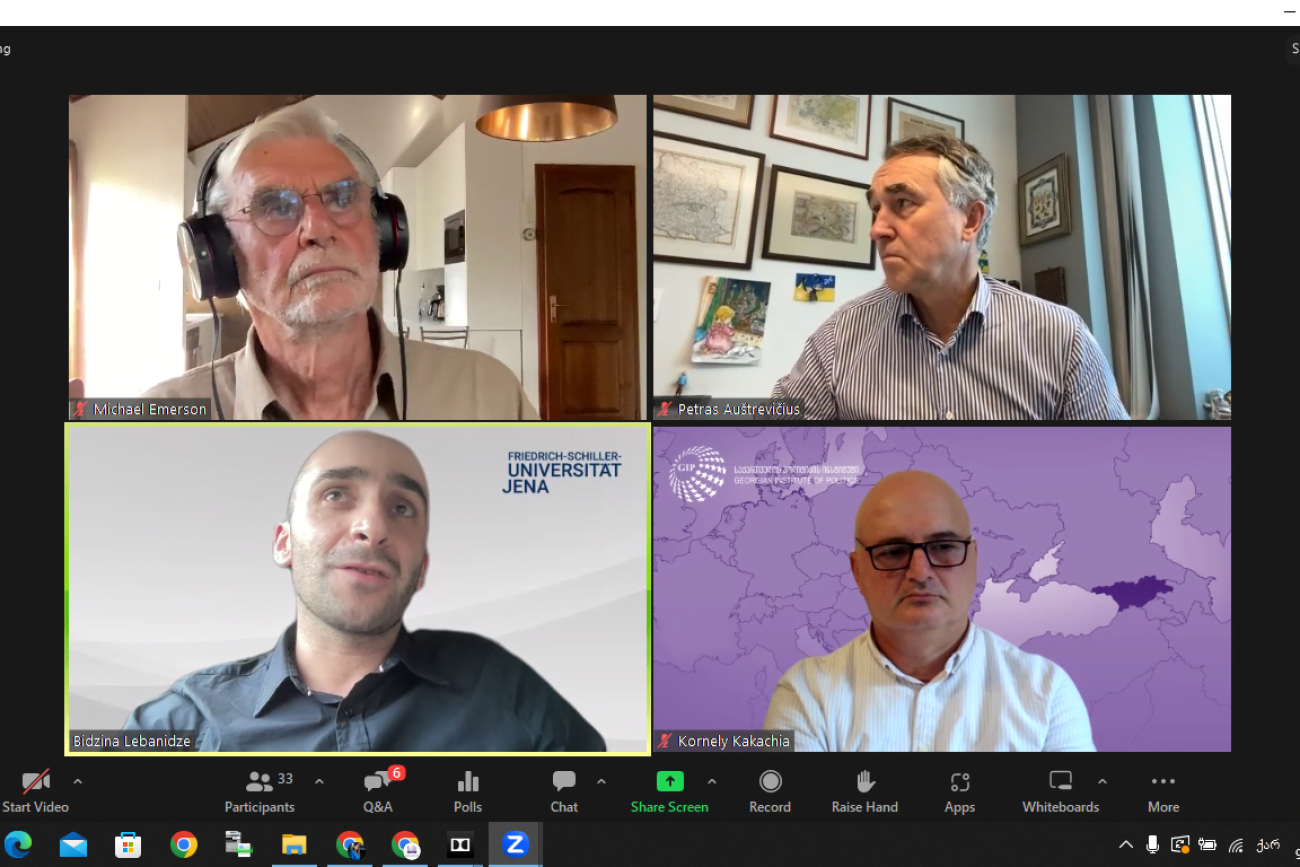On September 21, GIP held a virtual briefing “How to Strengthen Georgia’s Alignment with the EU Foreign and Security Policy?”, inviting Tbilisi and Brussels-based experts, policymakers, academia and media representatives for an open discussion on foreign policy of Georgia and the EU.
The briefing delved into crucial aspects of Georgia’s alignment with EU CFSP principles and trends, highlighting its impact on EU integration efforts. Distinguished speakers, Petras Auštrevičius (MEP, Renew Europe Group, Lithuania), Michael Emerson (Associate Senior Research Fellow, CEPS), and Dr. Bidzina Lebanidze (Senior Analyst at the Georgian Institute of Politics), shed light on the following critical questions:
- What is the EU CFSP, and what is the policy’s role in the EU’s enlargement process?
- How can the decreasing alignment rate with the EU CFSP impact Georgia’s EU integration?
- How can Georgia keep in line with CFSP?
MEP Petras Auštrevičius emphasized that aligning with the EU’s foreign and security policy is pivotal in Georgia’s integration journey, considering the EU’s dual identity as a political and economic union. He pointed out the imperative of full implementation of EU sanctions against Russia in Georgia. The strategic partnership with China, Auštrevičius noted, poses significant considerations as the EU refines its stance on China.
“The EU is looking for partners who align fully, and no cherry-picking should be tolerated,” – MEP Petras Auštrevičius
Dr. Bidzina Lebanidze echoed MEP Auštrevičius, providing a domestic perspective on the ongoing crisis. He observed that the Georgian government’s pursuit of short-term gains over long-term objectives complicates progress. Lebanidze noted the government’s apprehension that strict adherence to EU conditions could potentially weaken its domestic standings.
Michael Emerson, whose work has focused extensively on Georgia’s European integration, identified domestic politics as a persistent challenge. He stressed the interconnection of domestic and foreign policy issues, underscoring concerns that Georgia’s stance might hinder policies involving Russia and Ukraine. Emerson also raised concerns about China’s influence in the Black Sea region.
Addressing citizens concerned about Georgia’s alignment with EU foreign policy, Emerson urged pro-European individuals to rally their efforts during elections. He acknowledged the complexities of balancing relations with both Russia and the EU, cautioning that such a stance can be precarious.
“Georgia has an excellent reason to want to have a working relationship with Russia and, at the same time, the EU – however, it is a theoretical model, a model of sitting on the fence – this model can be very uncomfortable and is not everlasting,” – Michael Emerson, CEPS
The briefing, attended by civil society members, stakeholders, and local media, facilitated an interactive exchange of insights and inquiries. Journalists received comprehensive responses to their questions.
The briefing was organized under the framework of the project “Strengthening Georgia’s Alignment with the EU Foreign and Security Policy,” financially supported by the Open Society Georgia Foundation (OSGF).




